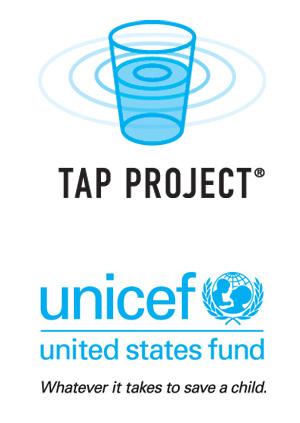Throughout the month of March, UNICEF’s Tap Project donated clean water to children around the world who lack access to it every time someone agrees to put their phone down.
When water is unsafe and sanitation is non-existent, water can kill. According to UNICEF’s website, there are 660 million people in the world who don’t have clean drinking water, and there are nearly 1,000 children under the age of five that die everyday from waterborne illnesses.
The way the UNICEF’s Tap Project works is by using a phone’s internal motion sensor to monitor activity. For every 10 minutes that users stay off their devices, the organization will donate one day’s worth of clean water.
Over the years, UNICEF has helped people, and more specifically children, receive water in nearly 10 countries. For example, in 2013, they helped Syria rebuild their plummeting water system and have provided almost 10 million Syrians with clean drinking water. Last year, they brought people in the Philippines clean drinking water after Typhoon Haiyan.
“Some of us can’t go for more than a few minutes without checking our cell phones. Imagine what it’s like to go days—or longer—without safe drinking water,” said Caryl Stern, President and CEO of the U.S. Fund for UNICEF.
This was a great way for students to give back without really doing anything. A typical college class lasts at least 50 minutes, so that amounts to five days of water.
Students also benefited from this challenge because it encouraged them to not only realize how attached they are to their phones, but also how disconnected they are from the world around them.
According to a study done by researchers at Baylor University, college students spend almost eight to 10 hours a day on their phones.
While living in America, it can be easy to forget how privileged we are. So many college students have the latest iPhones, but few realize the impact that is felt by underdeveloped countries. For example, according to National Geographic, it takes almost 240 gallons of water to produce one cell phone.
Although the Tap Project is over, students can still help provide clean drinking water to underdeveloped countries by donating money or volunteering with UNICEF.
There are also other organizations such as Team World Vision, which host s6K races around the world. Another alternative to donating money is for students to organize fundraisers within their various clubs.
Whether or not you choose to help bring clean drinking water to the less fortunate, you should still be mindful of your water consumption and look for ways to reduce your water footprint.
Some simple steps you can do to reduce your water consumption is by taking shorter showers, not letting the faucet constantly run when you’re brushing your teeth and not running the dishwasher until it’s completely full.
Just because we’re a first-world country doesn’t mean we’ll have clean water forever. This is evident when we look at California, whose water supply is running dangerously low.
Ashanti Banks is a student with a minor in journalism. They can be reached at AB721060@wcupa.edu


Great article. I wish I would’ve known about this when it was active. Thank you for sharing!